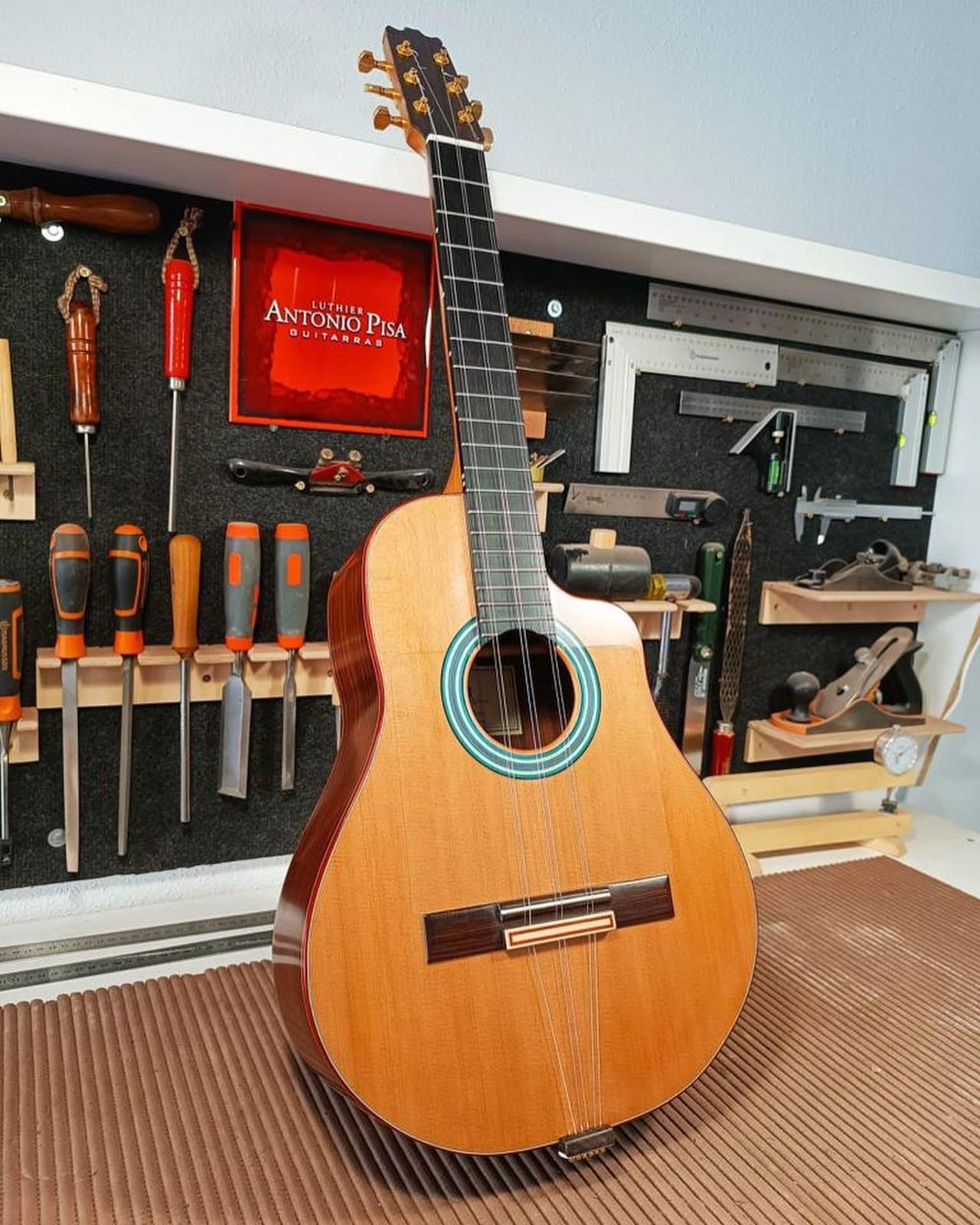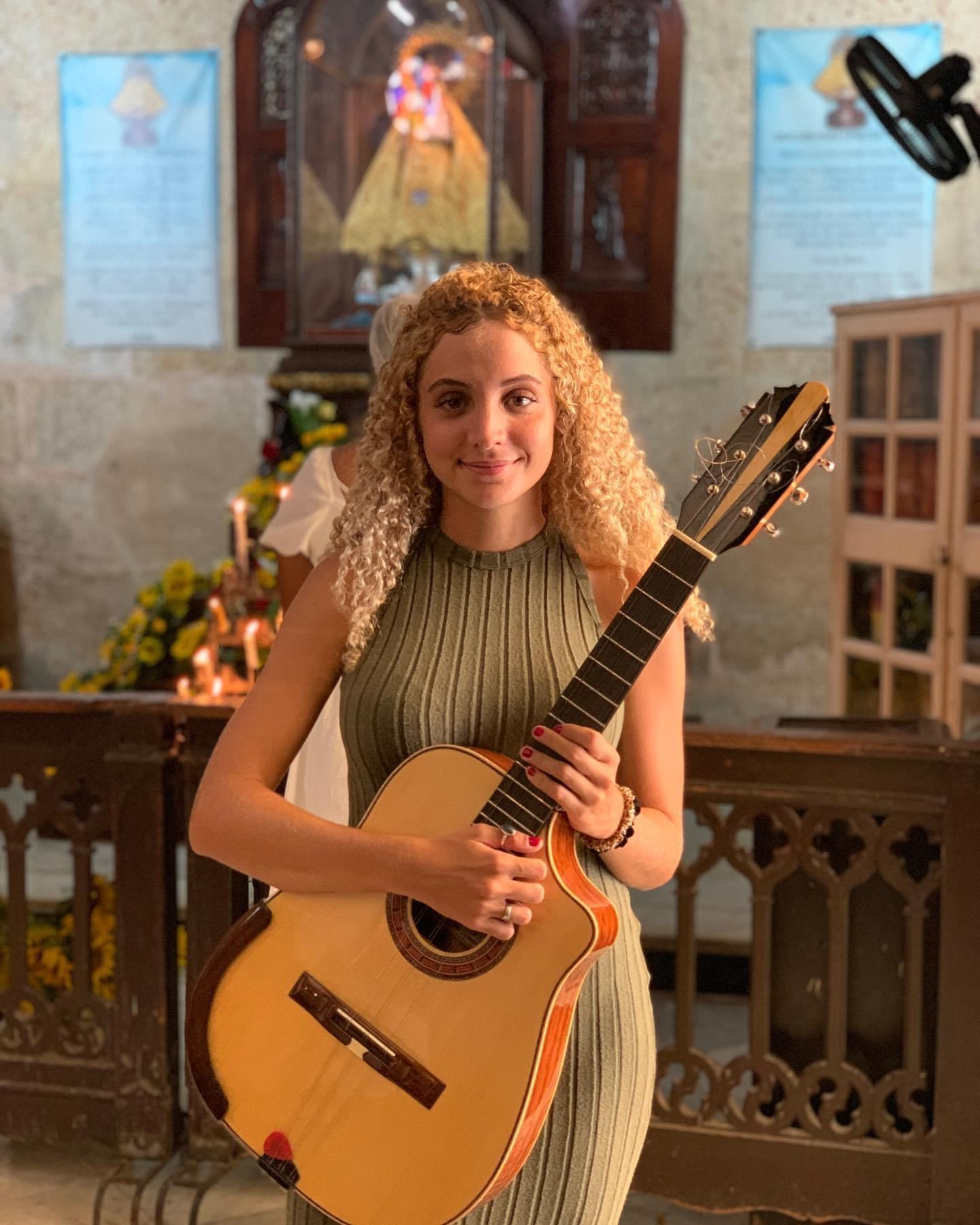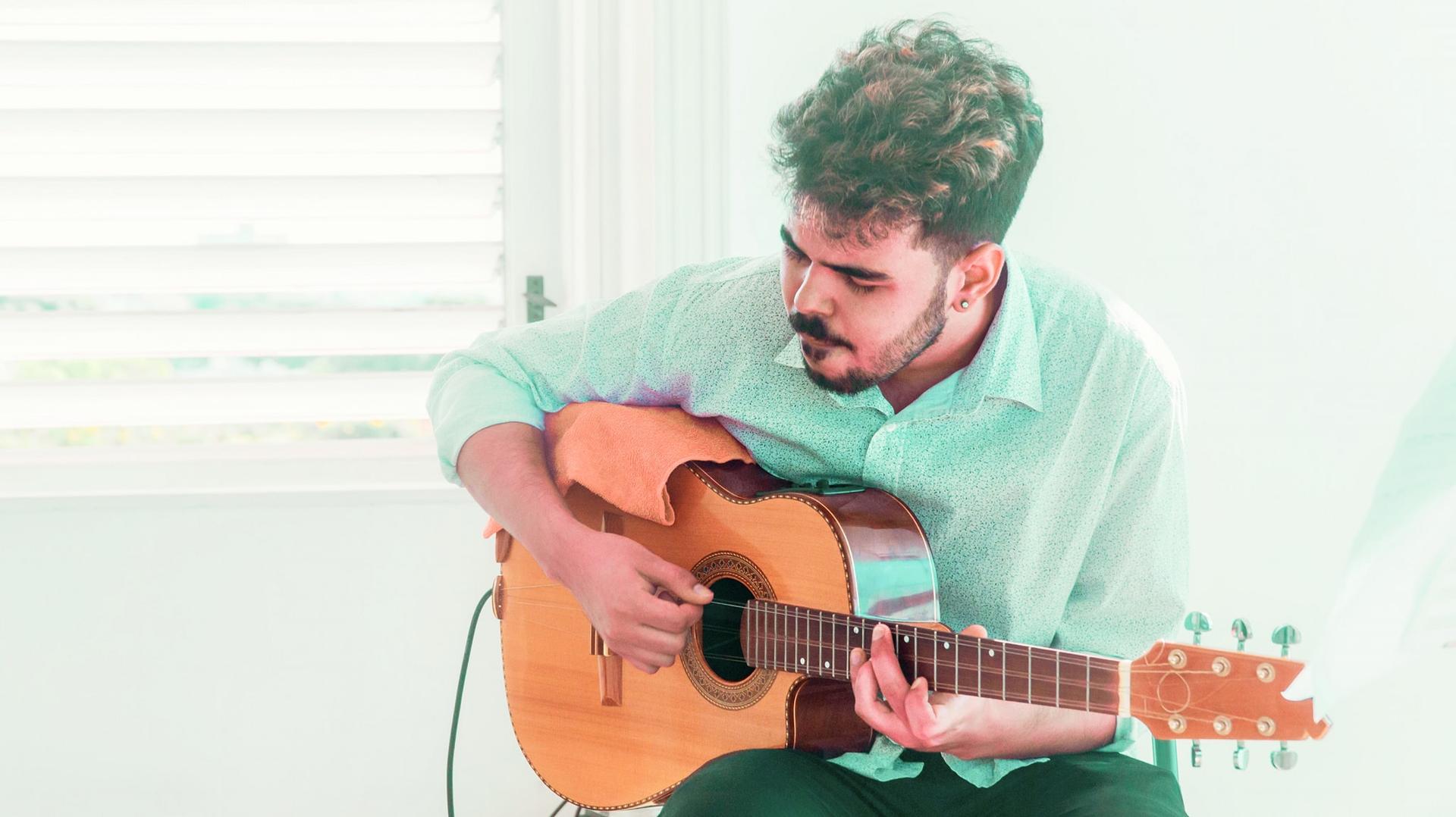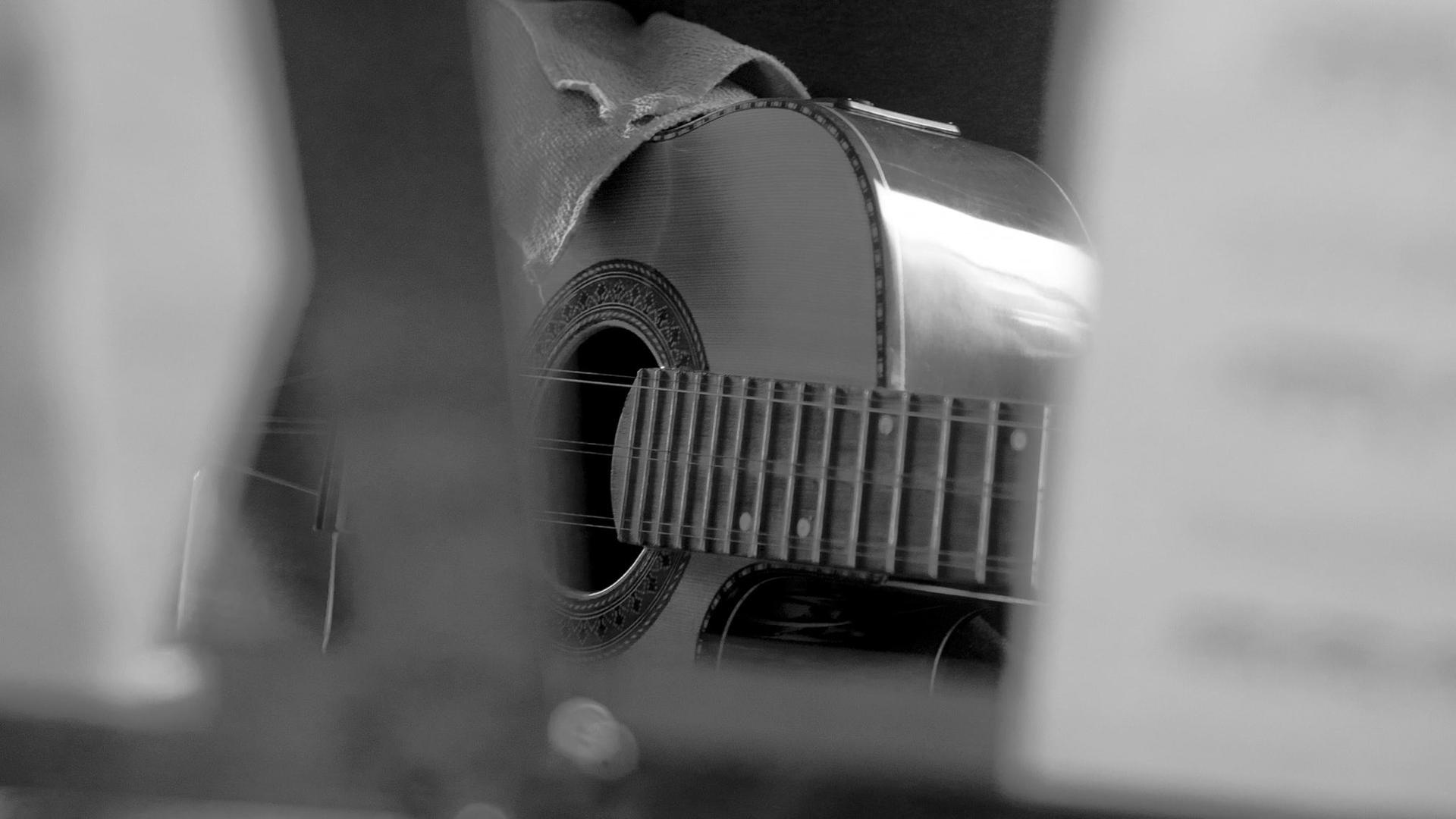As Olivia Soler and Mario Salvador are getting ready for a rehearsal at Berklee College of Music in Boston, they display the instrument they are going to play.
“It’s similar to a guitar but smaller …” Soler said. “and it has three pairs of metallic strings.”
She’s referring to the Cuban tres.

Soler and Salvador just arrived in Boston as the first tres players in Berklee’s history.
The sound of this instrument has become a defining characteristic of the Cuban Son, a precursor to salsa music.
Soler and Salvador like to play traditional Cuban music, but they came to Berklee with a different mission in mind.
“I want to innovate with the sound of tres and make this instrument more universal,” Salvador told The World.
Soler said she wants to make compositions where the instrument plays a central role. It’s usually an accompaniment.

The young musicians are grateful to their teacher Efrain Amador, who set them on this path.
Three decades ago, Amador founded the first program of study in tres in Cuba at the University of the Arts in Havana.
“I was determined to create a curriculum for students of Cuban tres, where they could play music from baroque to contemporary,” he said.
Susan Thomas, a researcher of Cuban music at the University of Texas, said this was an important turning point for the national instrument of Cuba.
“It was the first time that these state schools began to actively acknowledge and celebrate elements of Cuban culture that were worthy, not just of being recognized as tradition, but as national art and as tools for creative artmaking,” she said.
But it wasn’t easy for Amador.
He said he faced a lot of resistance from popular tres players who believe that the instrument shouldn’t be studied in school but should only be taught as an oral tradition.
He persisted in teaching students music theory and harmony, and now his students are being admitted to international universities.
Amador’s former student Salvador said he still can’t believe he’s in Boston.

“I feel like I’m inside a movie scene,” he said. “… it’s a dream come true.”
For the average Cuban, studying abroad is usually out of reach.
More than 70% of Cubans are living below the poverty line, according to the Cuban Observatory for Human Rights.
Salvador and Soler both received scholarships to cover their tuition, but they had to raise money to buy plane tickets, and pay for visas and living expenses. It took them over a year to raise the money.
“Life in Cuba is tough,” Soler said. “It’s difficult to find food, fuel, money isn’t enough and the internet doesn’t work well. Everyone is trying to survive.”
And, she said, that just drains the creativity of an artist.
Soler said she wants to make the most of this opportunity and for everyone to know about the Cuban tres.
